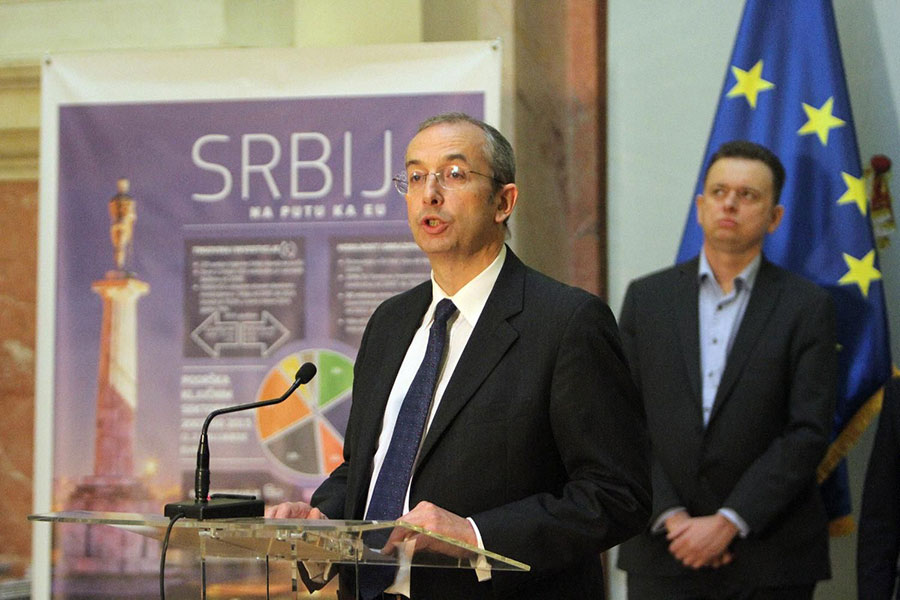Head of EU Delegation Michael Davenport said that the work on the first negotiating chapters 32 (Financial Control) and 35 (Kosovo relations) had already started within Serbia’s EU membership negotiations, noting that in 2016 they expected preparations for another two chapters – 23 and 24, Rule of Law and Fundamental Rights, respectively.
Davenport announced that as early as next week he expected a work meeting, followed by another one in January 2016, regarding the implementation of directives dealing with transparency of public finance.
“When it comes to chapter 35, this chapter is about taking stock of delivery on commitments within Belgrade-Pristina dialogue every six months,” said EU Ambassador.
He said that the chapters likely to be opened next are 23 and 24. At the same time, more than 10 screening reports are being reviewed regarding other chapters.
“I would rather speak about opportunities than difficulties. There is a lot of work ahead of us, but we do have a basis to make progress,” Davenport said and noted that the action plans on chapters 23 and 24, dealing with independence of justice, fight against corruption and media freedom.
“Naturally, there is more work regarding other chapters. European Commission has already sent more than 10 screening reports about other chapters,” Davenport said.
Asked whether the politics would seize to make influence on justice, Davenport said that common goal was to achieve the independence of justice, as well as its efficiency because Serbia had a large number of unresolved cases.
Davenport said European Commission was monitoring everything, including the election of public prosecutors. “We have written about it in our annual country report and we will most certainly write about it in our next report,” Davenport said.
When it comes to chapter 31, dealing with the harmonisation of foreign and security policy with the EU, Davenport said that the screening has not been finished yet and would form part of discussions in 2016.
It is up to Serbia to decide about the referendum on the membership in the Union, as requested by certain non-parliamentary parties, adding that the common practice is to call a referendum before a country actually joins the EU, the way Croatia did.
“Serbia should make this decision,” Davenport said.
- Davenport: Negotiating Chapters
- Davenport: Negotiating Chapters
- Davenport: Negotiating Chapters
- Davenport: Negotiating Chapters
- Davenport: Negotiating Chapters









